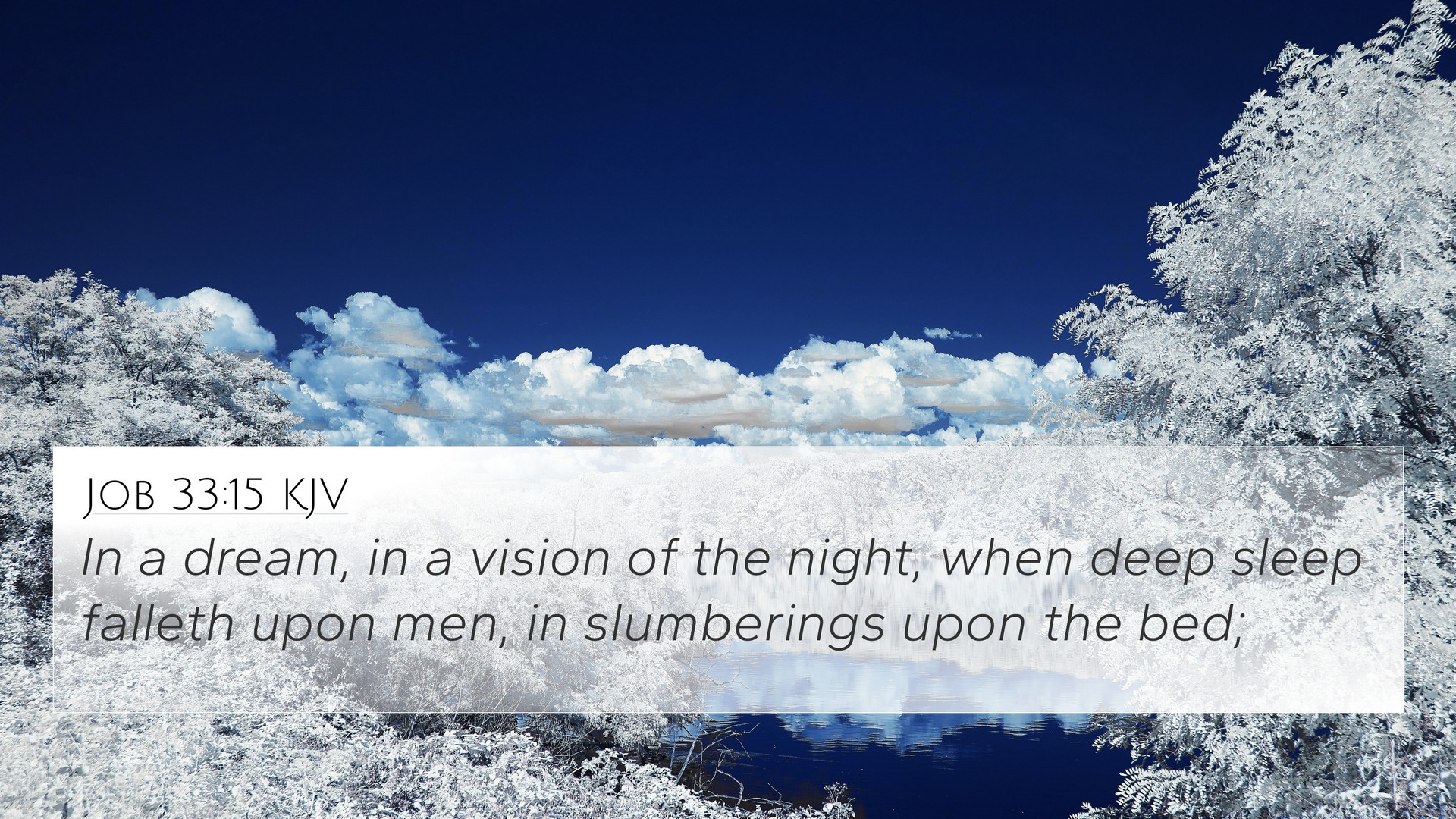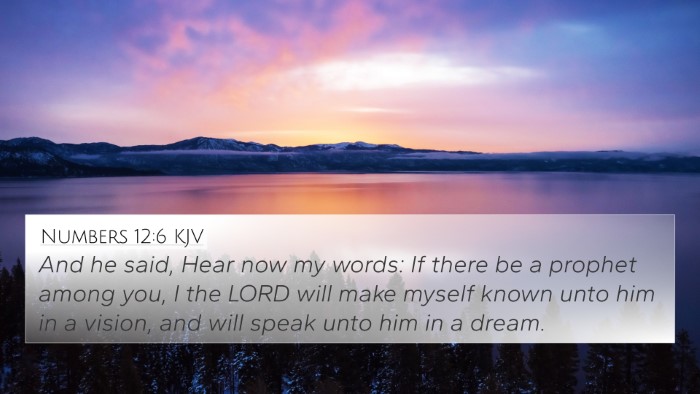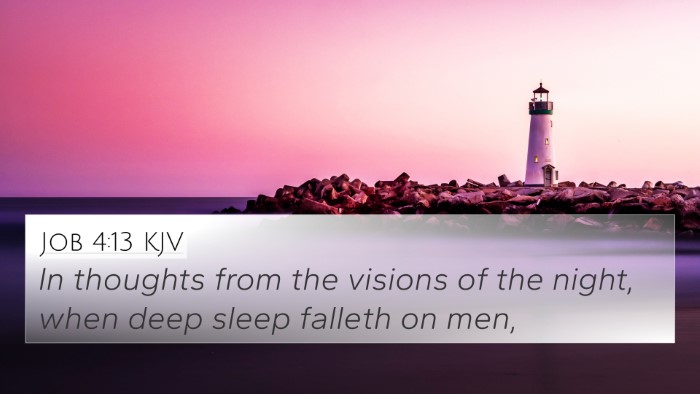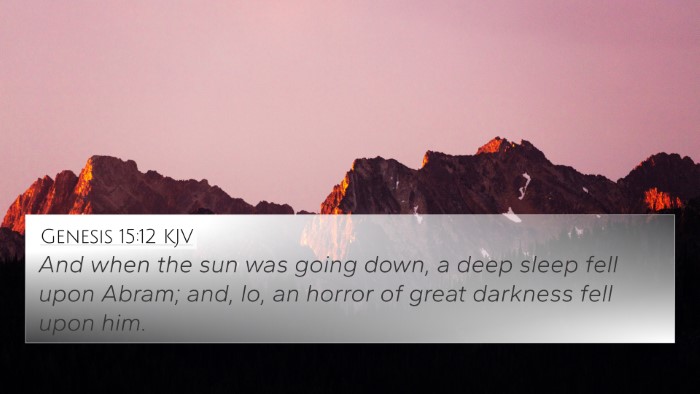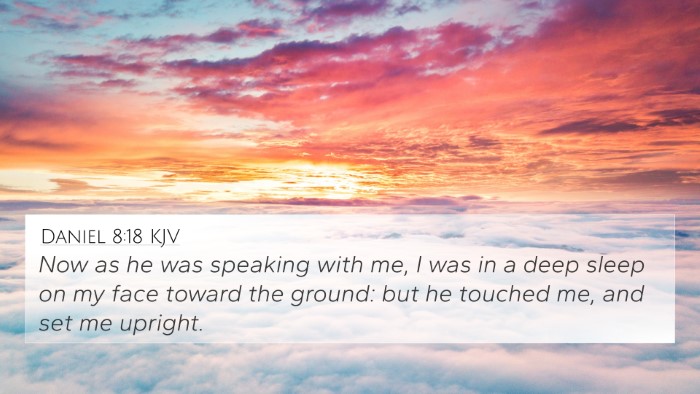Understanding Job 33:15
The verse Job 33:15 states: "In a dream, in a vision of the night, when deep sleep falls upon men, while slumbering on their beds." This passage highlights the significance of dreams and visions as a means through which God communicates with humanity. Below, we present a comprehensive analysis of the verse, drawing insights from renowned public domain commentaries by Matthew Henry, Albert Barnes, and Adam Clarke.
Meaning and Interpretation
This verse captures how God employs dreams and visions during sleep to convey important messages to individuals. The context provided by Job 33 highlights Elihu’s discourse regarding divine communication, suggesting God’s desire to guide and instruct His creation, particularly those who may be suffering or in distress.
Insights from Commentators
- Matthew Henry:
Henry emphasizes that God speaks to men in ways that are often unexpected, including during their dreams. He suggests that the tranquility of sleep is a time when God reaches out to impart wisdom, revealing truths and convictions that one may be unaware of in waking life.
- Albert Barnes:
Barnes reflects on the nature of dreams as a form of divine communication. He argues that dreams serve as a mode where God may correct, guide, or comfort individuals, enabling them to receive messages that lead to moral or spiritual transformation.
- Adam Clarke:
Clarke expands on the interpretation of the 'vision of the night', positing that it illustrates God’s willingness to intervene in human affairs. He notes that these nocturnal revelations are significant, calling people to deeper self-examination and confrontation of life’s challenges.
Significance of Dreams in the Bible
Diving deeper into the Bible, we find that dreams and visions play critical roles throughout scripture. They serve as prophetic tools and avenues of divine communication, as illustrated in various narratives.
Bible Verse Cross-References
- Genesis 37:5-11: Joseph’s dreams foreshadowing his future leadership.
- Daniel 2:19: God reveals Nebuchadnezzar’s dream to Daniel, showing divine insight.
- Acts 2:17: References Joel’s prophecy about God pouring out His Spirit, leading to dreams and visions.
- Matthew 1:20: An angel speaks to Joseph through a dream, directing his actions regarding Mary.
- Job 4:13-15: Eliphaz recounts a vision that terrified him, showcasing how God can manifest in dreams.
- Jeremiah 29:8: A warning against false dreams, indicating discernment in receiving dreams.
- 1 Kings 3:5: God appears to Solomon in a dream, granting him wisdom.
Connections Between Bible Verses
This theme of divine communication through dreams invites a broader exploration of how verses interrelate, showcasing God’s ongoing dialogue with His people.
- Linking Biblical Texts: The cross-references highlight that the method of dream communication is consistent across various biblical narratives.
- Comparative Bible Verse Analysis: Understanding the context of dreams in Joseph’s life (Genesis) compared to Solomon’s encounter (1 Kings) reveals ongoing divine interaction.
- Bible Verses That Relate to Each Other: The connections can be made to see how similar themes of divine guidance manifest across the Old and New Testaments.
Tools for Bible Cross-Referencing
Interpreting this verse and its connections can be aided by various tools:
- Bible concordances
- Cross-reference Bible study guides
- Bible reference resources for deeper exploration
Conclusion
Job 33:15 serves as a profound reminder of God's communication through dreams, aiming to guide us in our spiritual journey. By exploring the connections between biblical texts, one can enhance their understanding of God’s messages. The thematic links between Job’s experience and many other results underscore the importance of listening for divine insight, both in our sleep and in our waking lives.
